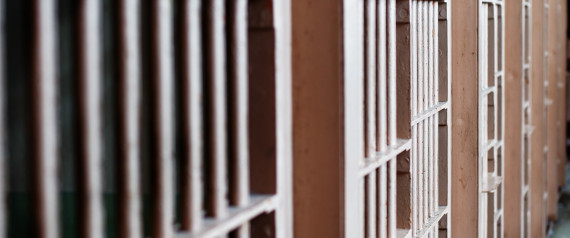WASHINGTON -- The ballooning cost of the overcrowded federal prison system is an "increasingly critical threat" to the Justice Department’s ability to fulfill its mission, the department's inspector general said in a report released Friday, which outlined the dual crisis the system faces.
"First, the costs of the federal prison system continue to escalate, consuming an ever-larger share of the Department’s budget with no relief in sight," said Michael Horowitz, the DOJ inspector general. "In the current era of flat or declining budgets, the continued growth of the prison system budget poses a threat to the Department’s other critical programs – including those designed to protect national security, enforce criminal laws, and defend civil rights."
"Second, federal prisons are facing a number of important safety and security issues, including, most significantly, that they have been overcrowded for years and the problem is only getting worse," he continued. "Since 2006, Department officials have acknowledged the threat overcrowding poses to the safety and security of its prisons, yet the Department has not put in place a plan that can reasonably be expected to alleviate the problem."
Horowitz said that addressing the problems will require the efforts of the entire Justice Department, not just the Bureau of Prisons.
His response to recent initiatives by Attorney General Eric Holder was mixed. He said the announcement that federal prosecutors will begin seeking lighter penalties for defendants in certain drug-related cases "is unlikely to have a significant short-term impact on prison costs" because defendants "are still likely to face some period of incarceration for their crimes." But he said Holder's Smart on Crime initiative, a plan designed to help decrease the nation's prison population, "could help contain federal prison costs depending upon the success of its implementation," adding that it may be able to "better align the investigative and prosecutive policies that drive incarceration costs with the Department’s current budget situation."
Pre-trial detention costs have risen from $617 million in 2001 to $1.5 billion in 2013, according to DOJ data, while the number of inmates exploded during that period, from around 157,000 inmates in 2001 to 219,000 presently. The Bureau of Prisons' budget increased by over $2 billion, from $4.3 billion to $6.4 billion.
Bureau of Prisons Director Charles Samuels Jr. testified in November that overcrowding was placing prison workers in danger.
Original Article
Source: huffingtonpost.com/
Author: Ryan J. Reilly
"First, the costs of the federal prison system continue to escalate, consuming an ever-larger share of the Department’s budget with no relief in sight," said Michael Horowitz, the DOJ inspector general. "In the current era of flat or declining budgets, the continued growth of the prison system budget poses a threat to the Department’s other critical programs – including those designed to protect national security, enforce criminal laws, and defend civil rights."
"Second, federal prisons are facing a number of important safety and security issues, including, most significantly, that they have been overcrowded for years and the problem is only getting worse," he continued. "Since 2006, Department officials have acknowledged the threat overcrowding poses to the safety and security of its prisons, yet the Department has not put in place a plan that can reasonably be expected to alleviate the problem."
Horowitz said that addressing the problems will require the efforts of the entire Justice Department, not just the Bureau of Prisons.
His response to recent initiatives by Attorney General Eric Holder was mixed. He said the announcement that federal prosecutors will begin seeking lighter penalties for defendants in certain drug-related cases "is unlikely to have a significant short-term impact on prison costs" because defendants "are still likely to face some period of incarceration for their crimes." But he said Holder's Smart on Crime initiative, a plan designed to help decrease the nation's prison population, "could help contain federal prison costs depending upon the success of its implementation," adding that it may be able to "better align the investigative and prosecutive policies that drive incarceration costs with the Department’s current budget situation."
Pre-trial detention costs have risen from $617 million in 2001 to $1.5 billion in 2013, according to DOJ data, while the number of inmates exploded during that period, from around 157,000 inmates in 2001 to 219,000 presently. The Bureau of Prisons' budget increased by over $2 billion, from $4.3 billion to $6.4 billion.
Bureau of Prisons Director Charles Samuels Jr. testified in November that overcrowding was placing prison workers in danger.
Original Article
Source: huffingtonpost.com/
Author: Ryan J. Reilly

No comments:
Post a Comment